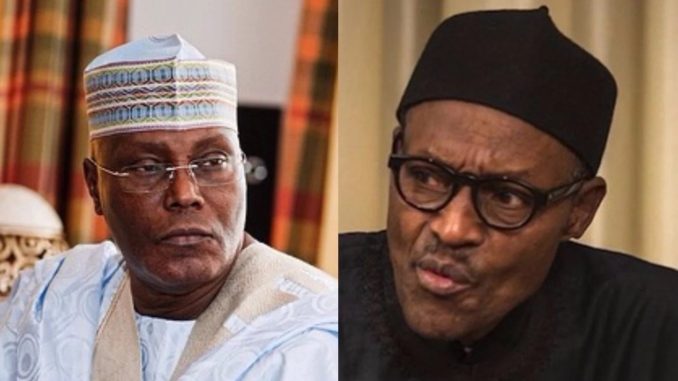
Difficult as they have been, the Buhari administration years appear to be the fastest we have had in recent times. While the opposition is catching its breath, it would seem, the administration is already on its way to the next general elections.
The national psyche is, meanwhile, reeling.No one had envisaged the kind of confidence with which the ruling APC is going about their campaign for next year’s polls. First of all they carry on as though the presidential election is the only one, and they are willing to sacrifice everything else for it.
In Ogun, outgoing Ibikunle Amosun has pledged his alliance to the president , regardless of existing bad blood between himself and the ruling party. The drama is unprecedented. But then virtually everything to do with the 2019 polls has been unprecedented so far. Deafening murmurs of discontent across the country over the years had naturally thrown up an incredible level of opposition, occasioning the registration of scores of new political parties.
A president riddled with ill health and apparently disconnected from both the electorate and the party alike seemed unlikely to want to return and if he did, It seemed unlikely that he would have a chance at it. In May of 2018, the septuagenarian president himself signed into law a bill that had altered sections 65, 106, 131 and 171 of the Nigerian Constitution in order to allow 30 year olds to be legally able to run for the presidency, as opposed to earlier provisions that put the age of consent at 40; amongst other alterations.
Though he had joked at the signing ceremony that the seat was not vacant, no one really took him seriously. Of the more than 90 new political parties registered ahead of the 2019 polls, quite a few are led by relatively young Nigerians who think the present crop of politicians and leaders have passed their sell_by dates and require urgent replacement by energetic and more agile individuals who know a tad more about technology and the everyday gains of it.
But as it would happen, experience seems to have got the upper hand over energy and unknown to the new crop of politicians, things have changed drastically in the country’s polity since they studied Political Science 101 in the general studies department at university. And while they had their heads buried in social media engaging virtual friends, the old crop was traveling about and re acquainting themselves with real people in the grassroots.
It has been all too easy, sadly, for the ranks of the new crop to be scattered. The so called PACT alliance of certain presidential aspirants went up in smoke faster than you can say “Aso Rock”, with stakeholders bickering like spoilt children over their general failure. While this failure has been blamed on their lack of structure, their lack of character and ultimately ineptitude are more likely to blame: indiscipline, impatience, and incredible levels of arrogance. It is no wonder that the electorate soon grew bored with the novelty that candidates such as Ezekwesili, Sowore, Fasua and constituted and moved on to reality.
Sadly that reality is not much more savoury than had been envisaged. It is not at all unusual to have horse trading going on as we enter the electoral season and the political atmosphere changes. If there is anything that is very normal, it is for serious politicians to position themselves in the best way they deem fit as elections approach. It is a process that is often approached shamelessly. Professional politicians are not interested in starting a movement or pushing a philosophy. They are in the game to win and are ready to do whatever they can get away with, in order to get the prize.
But the stampede caused by the level of cross carpeting in more recent times is nothing short of unusual. The game changer, of course, was the emergence of former vice president and prominent Northern businessman and political figure Atiku Abubakar as the candidate for the presidency by the main opposition party, PDP- with credentials so similar yet so different when compared with the incumbent’s. The rules immediately changed. Missiles that were hurled once can no longer be hurled. Many more were faced with the possibility of disenfranchisement, occasioning frantic and urgent repositioning. The situation is both bad and good for the polity.
It is good because the element of choice offered by democracy as a form of governance is virtually without limits and can only foster competition and ultimately better quality of candidature. Once the stakes are higher, there will be more political awareness, ideas in the public space and demand for good governance. The new crop (they cannot be accurately referred to as young) has demystified governance, albeit inadvertently, and has established the notion that the presidency is not the birth right of a chosen few but an office to which every Nigerian can aspire. Still, the situation poses some clear and present dangers which can attack the very soul of our democracy and our existence as a country.
At the return of civil rule in 1999,
efforts were initiated in earnest to price e political processes out of the hands of the honest Nigerian. As we are now confronted with the fruits of that effort, the commoditization of political aspiration has escalated public corruption in more complex ways. If those horse trading and cross positioning are doing so out of the desperation to serve their country, we would have a renaissance in not such a distant time. Nigerians ought to shine their eyes, as they say, so that 2019 does not see them dug in deeper into the hole they are already in.
END

Be the first to comment